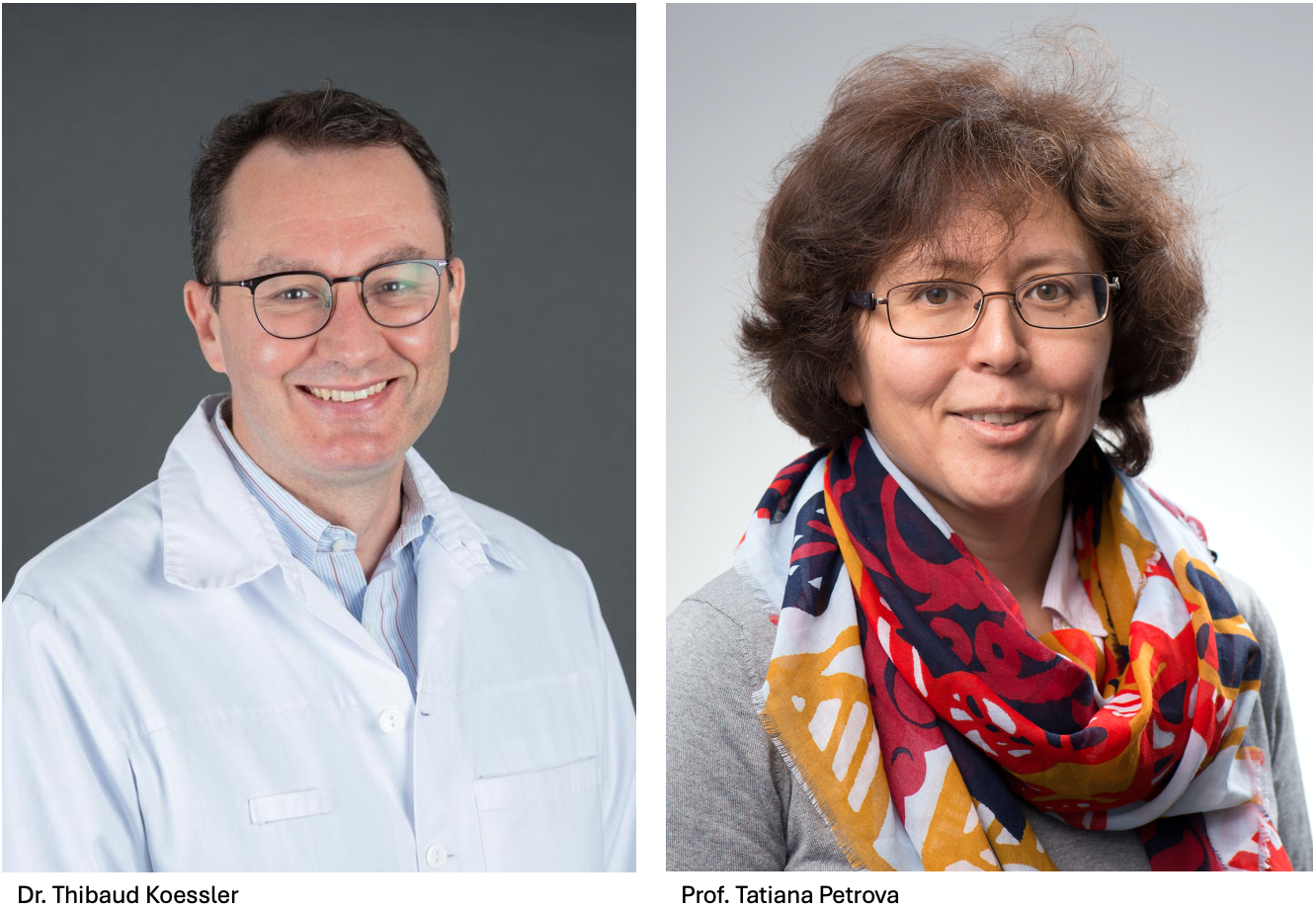Colorectal cancer – Prof. Tatiana Petrova (UNIL) and Dr. Thibaud Koessler (HUG)
Improving treatment for colorectal cancer to prevent metastasis

Colorectal cancer (CRC) is one of the world-leading causes of cancer-related mortality, and chemotherapy still is the mainstream treatment used for stage II and stage III CRC. The problem with chemotherapy is that in addition to killing cancer cells, it also attacks healthy tissues such as the gut and the liver. It is not yet known how chemotherapy alters the physiology and the susceptibility of these tissues. Recent research has shown that upon introduction of chemotherapy, there is a release of gut-derived bacterial metabolites. These metabolites have the ability to prevent liver metastasis by halting metastatic growth and reprogramming the immune vascular niche of the liver.
With this TANDEM project, Prof. Petrova and Dr. Koessler will collaborate to investigate the therapeutic and diagnostic potential of these findings in colorectal cancer patients. They aim to do this by analyzing the metabolites that get released in response to chemotherapy, by identifying the liver metastasis niche, and by examining the effect of the metabolites on patient-derived organoids (miniature versions of liver cultivated in vitro).
More specifically, they will:
- Profile the metabolites that are released in response to chemotherapy in CRC patients and relevant animal models.
- Characterize alterations in the liver metastasis niche in response to chemotherapy and gut microbiota components.
- Analyze how the released factors act on the growth of patient-derived organoids and metastasis formation in vivo.
This project will provide insight into how the response of organs to chemotherapy can directly influence patient outcome. The translational goal of this project is to address the current lack of biomarkers that could predict the sensitivity of chemotherapy in clinical practice. Ultimately, this could improve both diagnostic tools and therapeutic options.

